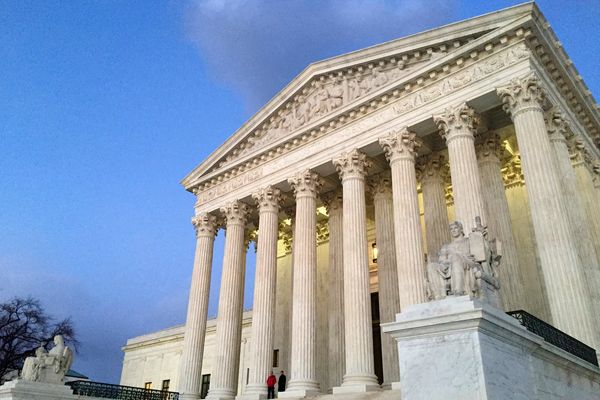
I appreciated the article by Rhiannon Lucy Cosslett (Culture warriors see not sick Britain, but a plague of ‘overdiagnosis.’ How convenient, 19 March), particularly the points she makes about autism. Growing up in the 1970s and 80s, I struggled with friendships and with any kind of social interaction outside the wider family. I was selectively mute as a young child, and as a teen developed anorexia in a desperate attempt to control something – anything – in a confusing and overwhelming world. I shrank to a ghost of a person, but somehow managed to regain weight and live an outwardly normal life, despite severe anxiety sometimes that I became expert at hiding.
A diagnosis as autistic in my 50s has brought immeasurable relief as I finally understand why I’ve struggled all my life to fit in. Increased diagnosis of autism is, at least for some, a blessing. It saddens me that so many articles misunderstand the condition and what it means for autistic people, who may indeed be “verbal and able to attend mainstream school”, as Cosslett writes, but may suffer in ways that aren’t obvious, yet still profound. I think that today’s world is even harder and less forgiving to navigate than in my childhood.
Julia Fahrenkamp-Uppenbrink
London
• Many adults are autistic but unaware of it. A large proportion will be leading healthy lives that work for them; perhaps the odd thing goes wrong, but nothing too significant. This was my life until recently.
Unfortunately, society isn’t autism-friendly, so we tend to operate at high stress levels in our daily lives. Many are not aware that they are near their limit. The additional pressures of recent years such as Covid, the cost of living, the housing crisis, constant phone notifications etc are tipping us over the edge into burnout. Allistic (non-autistic) and autistic people both suffer this stress, but autistic people are closer to their tipping point already.
Once that tipping point is surpassed, more stereotypically autistic “stress symptoms” emerge – routines become more important, sensory overstimulation becomes more likely, meltdowns and shutdowns start or become more frequent. Getting signed off from work with a misdiagnosis of depression or anxiety is often the next step, before people eventually realise that they are autistic and suffering burnout.
In my opinion, this is the real reason for the increase in the “overdiagnosis” of autism and ADHD. Increased pressures and uncertainties of life mean that a higher percentage of autistic people who were healthy no longer are. Knowing your neurotype means pieces of your life begin to fall in place. It means you’re kinder to yourself and you learn to understand your needs. This, in turn, helps avoid future burnout and so you keep contributing economically.
Mehmet Karatay
Newtonmore, Scottish Highlands
• I read Rhiannon Lucy Cosslett’s column regularly. I’m a late addition to the mum squad, but a longtime teacher. I’m terrified by the vulnerability of the teens that turn up at my further education college. Yes, they have often been handed labels for the poor behaviour that follow them into pre-adulthood. “I can’t do that, I’ve got ADHD” or “I need blue paper or I can’t read it” are phrases heard regularly. It would be so easy to eye-roll and treat it as overdiagnosis. But the rot goes deeper.
This is the generation that has been fundamentally let down by society and the institutions that were meant to guide them. They struggle to deal with a classroom environment. They have experienced failure and despair again and again. Whether it is a neurological condition or a byproduct of an indifferent world, a label or a diagnosis (even a self-imposed one) is a way of saying “notice me, I matter”. When I remember to photocopy on blue or green or yellow paper, I am at least thinking of that individual. It might be the only attention they get all day.
Jess Rogers
Chester
• Rhiannon Lucy Cosslett describes with moving clarity and sensitivity the painful and humiliating world neurodivergent people inhabit in today’s Britain. My intelligent and articulate adult son is probably autistic. Despite decent GCSEs and A-levels, his high anxiety meant he could not face going to university. His efforts to find local work that does not leave him mentally and emotionally floored has led to four brief jobs that he could not sustain. It’s been his experience that, without a formal diagnosis, no employer will consider reasonable adaptations to support him. So, Wes Streeting, your guidance please. To diagnose or not to diagnose? That is the question.
Name and address supplied







